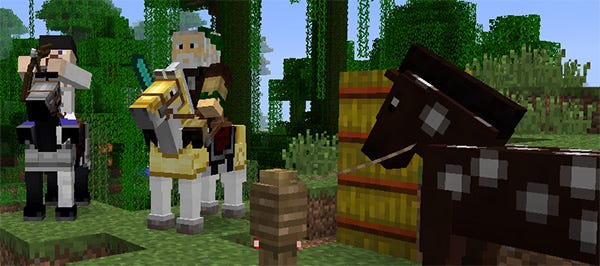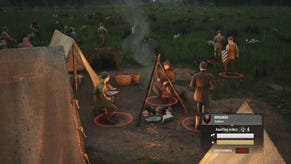The Complications Of Minecraft's Paid Server Situation
What's yours is mine
Edit: Please note that we've updated and expanded this post to lend more clarity to what is a complicated and still-changing issue.
Yesterday we posted about the outraged reaction to Minecraft's new no-charging-for-gameplay-affecting items policy and, in turn, Notch's response to that. That initial post was pretty dismissive of the anger because it didn't really seem like Mojang had changed a whole lot. The newly published ruleset is a clarification of the existing regulations rather than a modification or expansion, but some servers will find their core means of monetization cut off by the eventual enforcement of those rules. Many monetization options will remain, however, and looking at the specifics of Mojang's restrictions sheds light on what the developer would like to prevent.
It should be stressed again that the rules are not new. They've been reworded and are due to be enforced more strongly than before but the purpose of the restrictions remains the same as it has ever been. If Mojang made a mistake, it lay in the length of time they permitted servers to exist in Minecraft's ecosystem while working against the company's legally enforcable attitude toward in-game payments. Put simply, Mojang seem to be attempting to prevent the recognisable traits of 'pay-to-win' from taking root on Minecraft servers - but the roots are already in place so on August 1st, they'll begin the process of weeding the garden.
August 1st is the date that the rules regarding monetization will be enforced from, but servers will still have many options to charge players. The clamp-down targets servers that allow use of ‘hard currency’, including Bitcoins or other elements that can be converted into real money, and specific ‘gameplay-affecting features’ such as boosters and item-generators. Essentially, as was always intended, servers can charge subscriptions, entry fees or for timed access, but every user must have the same possibilities available to them.
Essentially, Mojang’s rules appear to be designed to prevent pay-to-win, or pay-to-advance servers. While this will undoubtedly affect some servers, particularly those that rely on earnings from XP boosts and equipment for competitive play, the EULA still provides freedom to charge for servers, including at the most basic level – an entrance fee or recurring subscription fee.
Mods are permitted, as long as everybody using the server is seeing and using the same infrastructure, and servers can still include minigames. The rules state that minigames must be available to all though, so you won’t be able to pay 50p for tickets, although in-game ‘soft’ currency is allowed and could be earned on the server to swap for items. If a form of currency is earned in-game and can’t be exchanged directly for cash outside the game, or indeed transferred from one server to another, then it’s within the rules.
This will affect networks such as Shotbow, which have premium packages that provide ‘permanent grappling hooks’, team-joining abilities and other advantages. Many of the benefits are cosmetic though and those would still be permitted, as would any ‘advantage’ that doesn’t provide a direct in-game superiority or perk.
Kotaku spoke with a number of members of Minecraft's mod scene, including Shotbow, who claim that the enforcement of the rules will damage their operations severely.
Many of the more elaborate Minecraft server networks take a great deal of money to manage. Shotbow Network has three full-time staffers and five part-timers. Together they've created mods like MineZ and Light Bikes. Owner Matt Sundberg explained his perspective:
"Large server networks are incredibly expensive to run and are very time consuming. Most large networks run hundreds of Minecraft servers, along with enterprise DDOS protection, databases, dedicated proxies, and web infrastructure. In addition to that, many employ full time staff to manage the hundreds of hours of labor required for server maintenance and plugin development."
There is also a concern that while legitimate servers will play by the new rules, the ones that made this into a problem to begin with - greedy vultures out for freshly minted wallet carrion - will simply find new ways to break them. From that perspective, nobody wins.
Whatever the case, Minecraft's wider community is set for a wake-up call. How much will change is difficult to predict and it seems clear that only certain types of server should be affected by the long-time coming enforcement. Come August 1st, the deadline's up and - if need be - Mojang will bring out lawyers. It's their garden after all. Whatever the specifics of the case, the fact remains that businesses built around making money from someone else's business will always face potential upheaval.
















